Beleniuk, Aleksanyan, Hryshchanka Claim Golds on Final Day of European Games
Sunday, June 30, 2019 - 14:55 By United World Wrestling Press

MINSK, Belarus (June 30) - Artur ALEKSANYAN (ARM), one of the world's most decorated Greco-Roman wrestlers, can now add European Games gold medalist to a resume that includes an Olympic gold, three world titles and four European titles.
The 27-year-old Armenian shut out local favorite Aliaksandr HRABOVIK (BLR) 5-0 in the gold-medal match at 97kg in Greco-Roman on the final day of the European Games at the Minsk Sports Palace.
Aleksanyan scored a passivity point in the first period and led 1-0 at the break. He pulled away in the second period, going up 3-0 before executing a gut wrench with a little over a minute remaining in the match.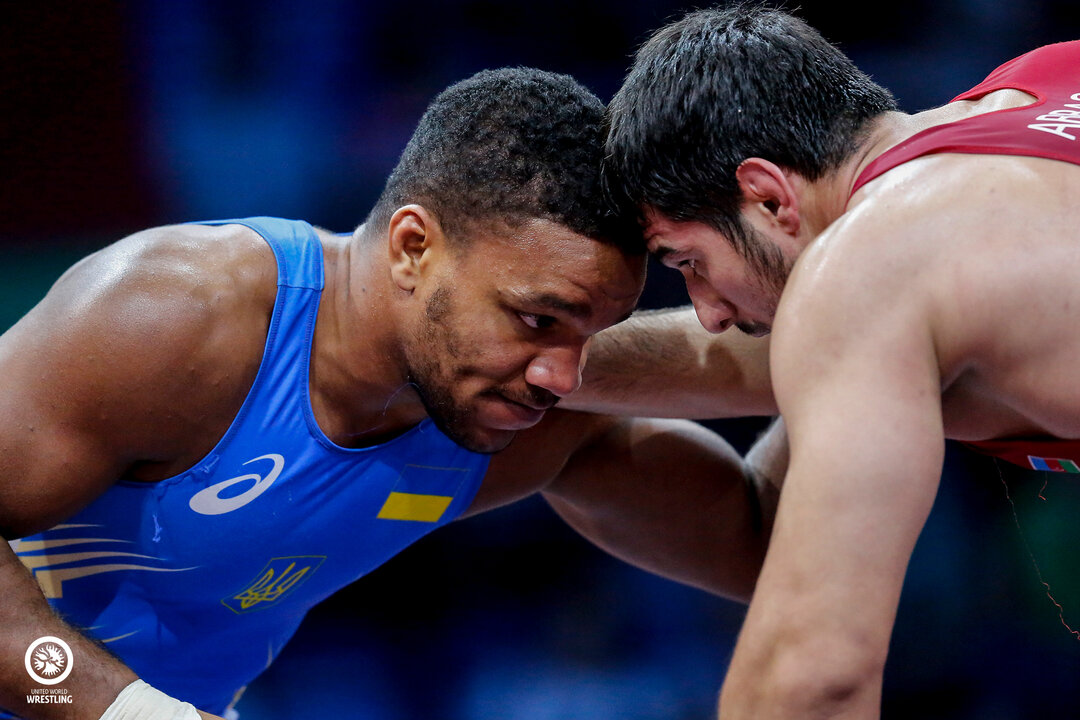
World No.1 Zhan BELENIUK (UKR) claimed the gold medal at 87kg, improving on his silver-medal performance at the previous European Games in 2015. Beleniuk, a 2015 world champion and 2016 Olympic silver medalist, defeated multiple-time U23 world medalist Islam ABBASOV (AZE) 3-1 in the gold-medal match. It was a rematch of this year's European Championships gold-medal match at 87kg, which Beleniuk won 5-1.
On Sunday, the 28-year-old Ukrainian scored first off a passivity and then used a gut wrench to go up 3-0 in the first period. Abbasov, ranked No.5 in the world, would add a point off a passivity in the second period, but Beleniuk would hang on to win by two. He celebrated with a victory dance on the mat. 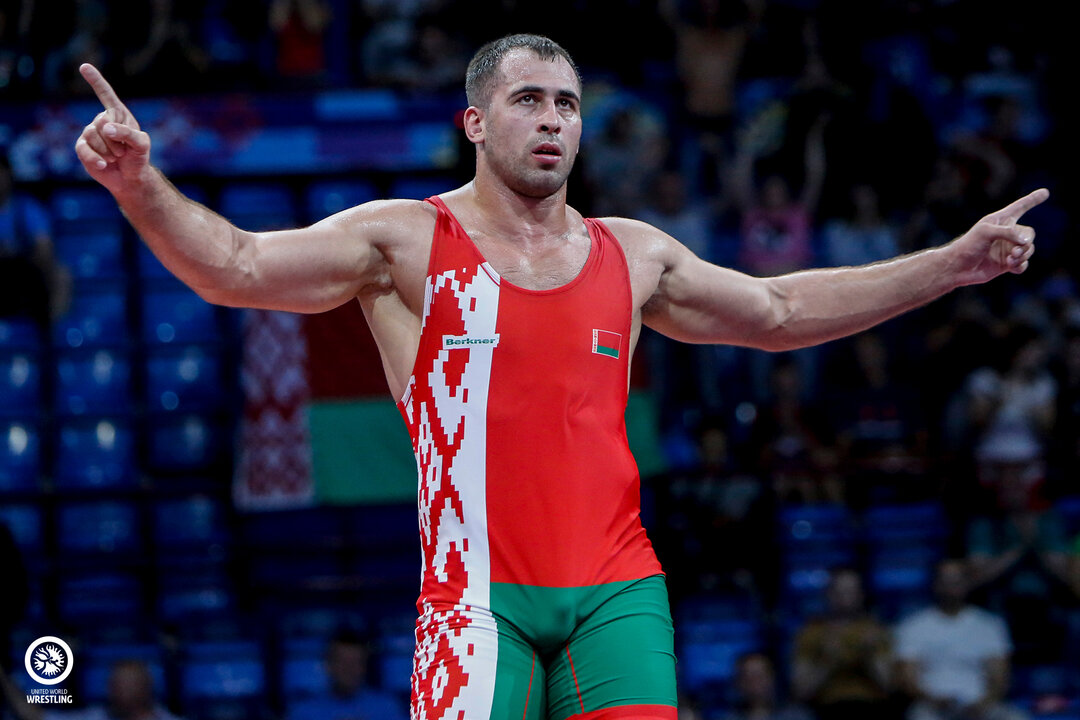
Kiryl HRYSHCHANKA (BLR) sent the home crowd into a frenzy by winning a gold medal at 130kg in the final wrestling match of the European Games. He topped multiple-time European medalist Iakobi KAJAIA (GEO) 5-1 in the finals. The Belarusian heavyweight went down 1-0 before turning the tables. With Kajaia looking for a turn in par terre, Hryshchanka reversed the action and put the Georgian in trouble, nearly securing a fall and gaining two points in the process. He then used an exposure to go up 4-1. He would add a passivity point in the final period to win by four.
World No.4 Viktor LORINCZ (HUN), a two-time world bronze medalist, earned a bronze medal at 87kg by defeating Ivan HUKLEK (CRO) 7-1. The other bronze medal at 87kg was won by Arkadiusz KULYNYCZ (POL), who picked up a 7-1 victory over Radzik KULIYEU (BLR). Kulynycz trailed at the break before scoring seven unanswered points in the second period.
Felix BALDAUF (NOR), a 2017 European champion, took home a bronze medal at 97kg with a 6-1 win over Olympic bronze medalist Cenk ILDEM (TUR). Two-time U23 world champion Aleksandr GOLOVIN (RUS) rebounded from a semifinal loss to Aleksanyan to beat Revazi NADAREISHVILI (GEO) 5-1 for a bronze medal at 97kg.
A pair of 2016 Olympic bronze medalists won bronze medals at 130kg, Sergey SEMENOV (RUS) and Sabah SHARIATI (AZE). Semenov, a returning world champion, dominated Mykola KUCHMII (UKR) 10-1. Shariati edged Oskar MARVIK (NOR) 3-2, scoring the go-ahead takedown with just under two minutes remaining. It's Shariati's second European Games medal as he won a silver medal in 2015.
RESULTS
Greco-Roman
87kg
GOLD - Zhan BELENIUK (UKR) df. Islam ABBASOV (AZE), 3-1
BRONZE - Viktor LORINCZ (HUN) df. Ivan HUKLEK (CRO), 7-1
BRONZE - Arkadiusz KULYNYCZ (POL) df. Radzik KULIYEU (BLR), 7-1
97kg
GOLD - Artur ALEKSANYAN (ARM) df. Aliaksandr HRABOVIK (BLR), 5-0
BRONZE - Felix BALDAUF (NOR) df. Cenk ILDEM (TUR), 6-1
BRONZE - Aleksandr GOLOVIN (RUS) df. Revazi NADAREISHVILI (GEO), 5-1
130kg
GOLD - Kiryl HRYSHCHANKA (BLR) df. Iakobi KAJAIA (GEO), 5-1
BRONZE - Sergey SEMENOV (RUS) df. Mykola KUCHMII (UKR), 10-1
BRONZE - Sabah SHARIATI (AZE) df. Oskar MARVIK (NOR), 3-2

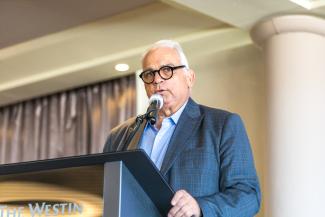
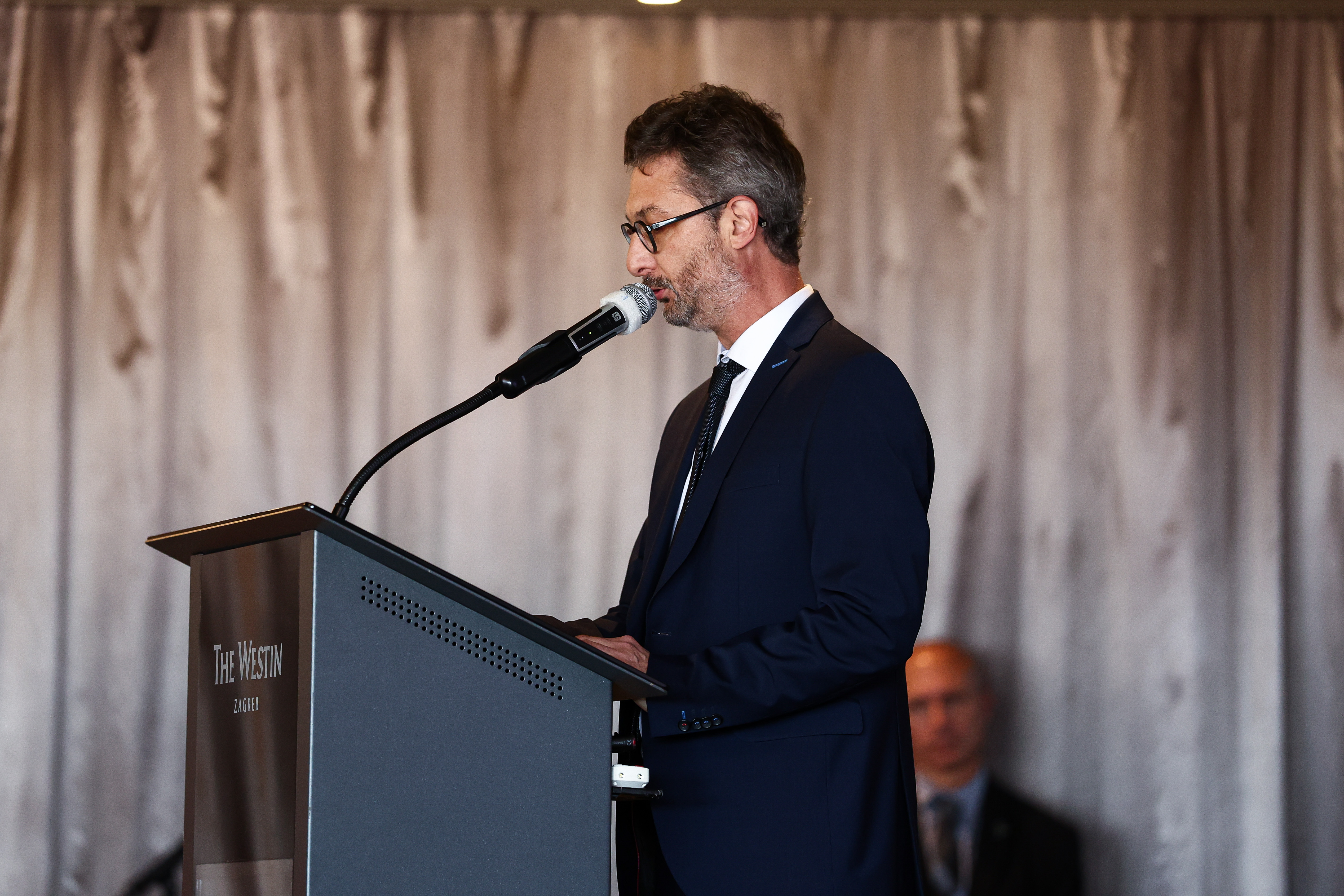 UWW Secretary General Carlos ROY welcomes the delegates to the World Conference. (Photo: United World Wrestling / Jake Kirkman)
UWW Secretary General Carlos ROY welcomes the delegates to the World Conference. (Photo: United World Wrestling / Jake Kirkman)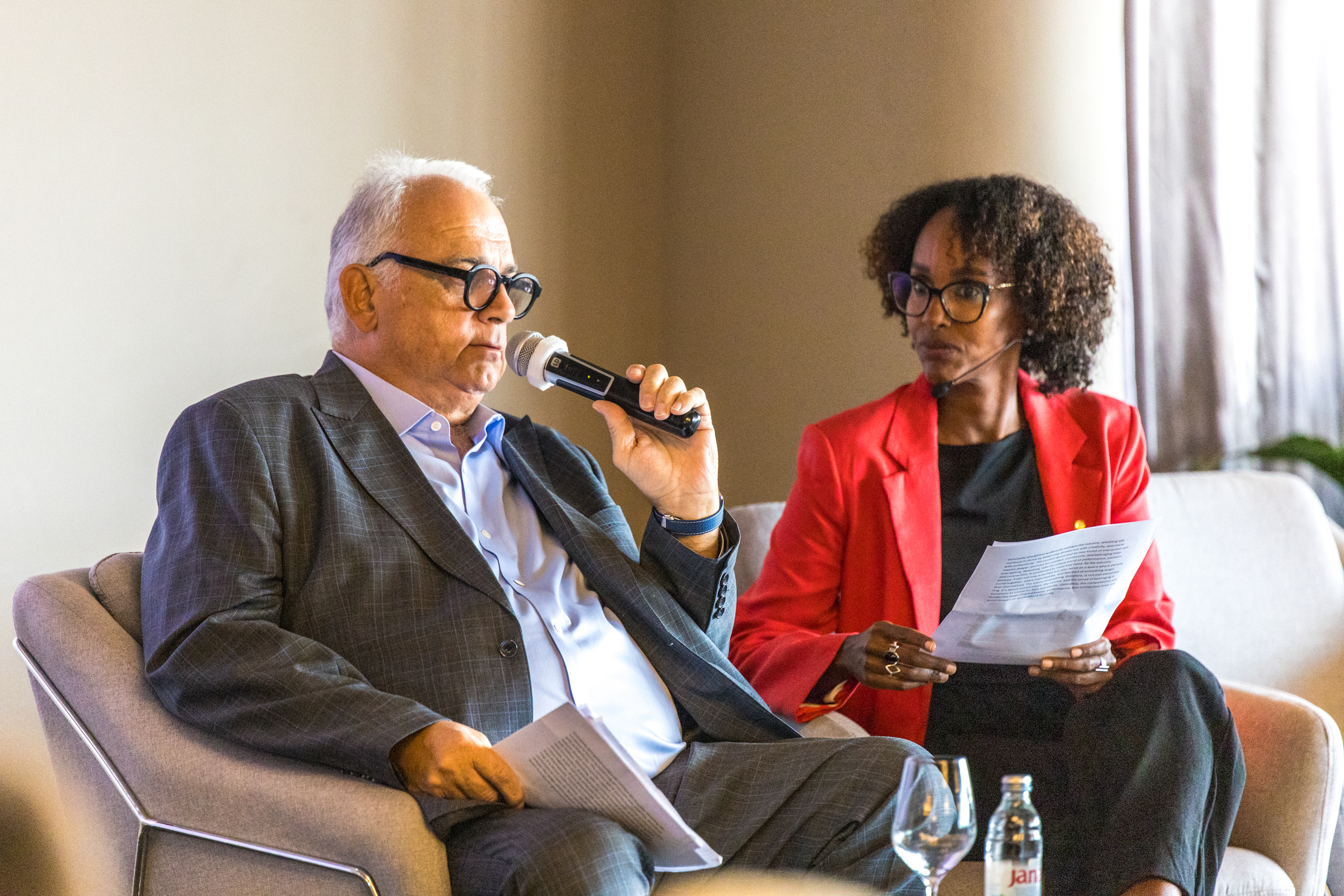 Nenad LALOVIC in a Q/A session with UWW Development Director Deqa NIAMKEY.
Nenad LALOVIC in a Q/A session with UWW Development Director Deqa NIAMKEY.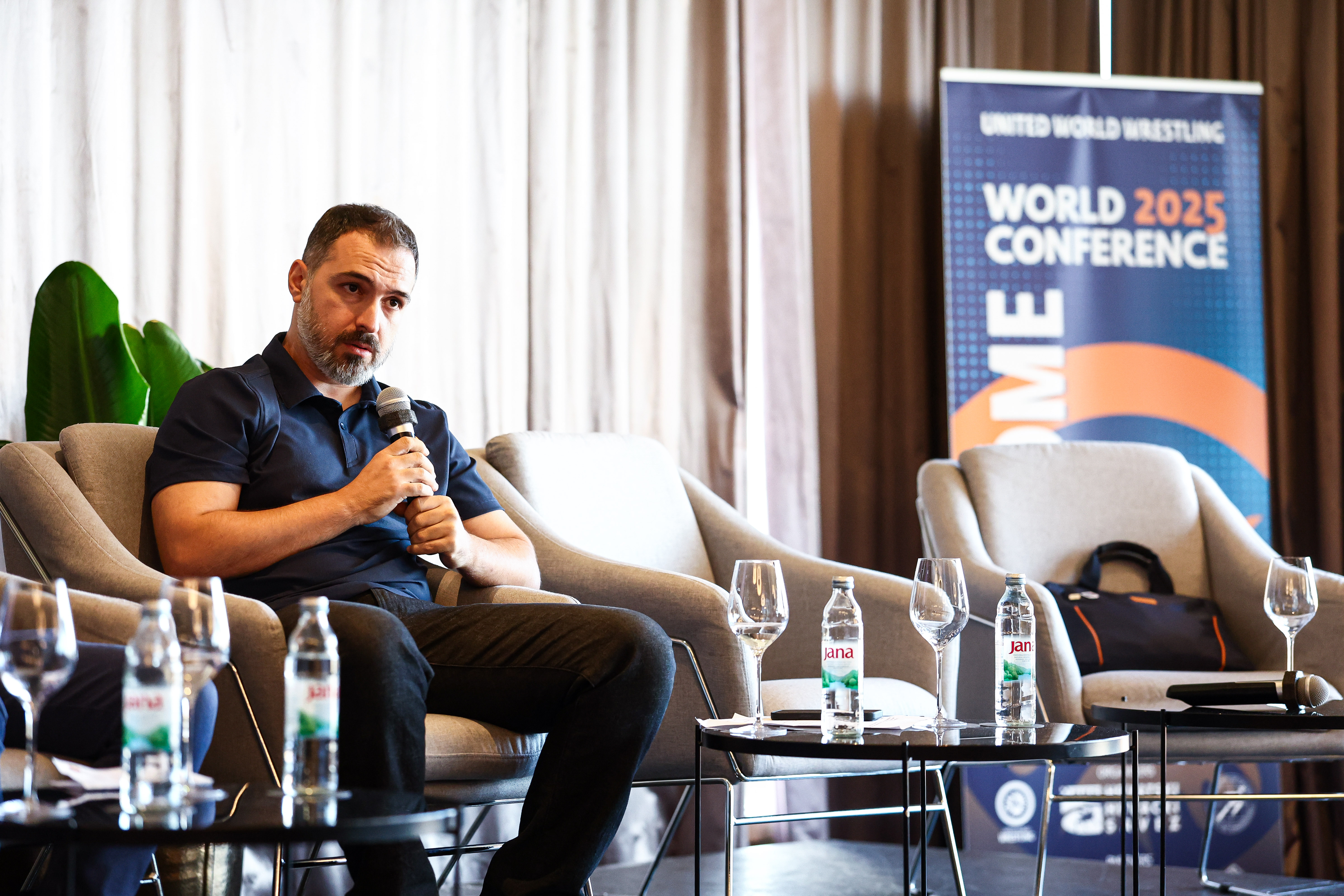 UWW Associated Styles Manager of UWW Onur SIMSEK.
UWW Associated Styles Manager of UWW Onur SIMSEK.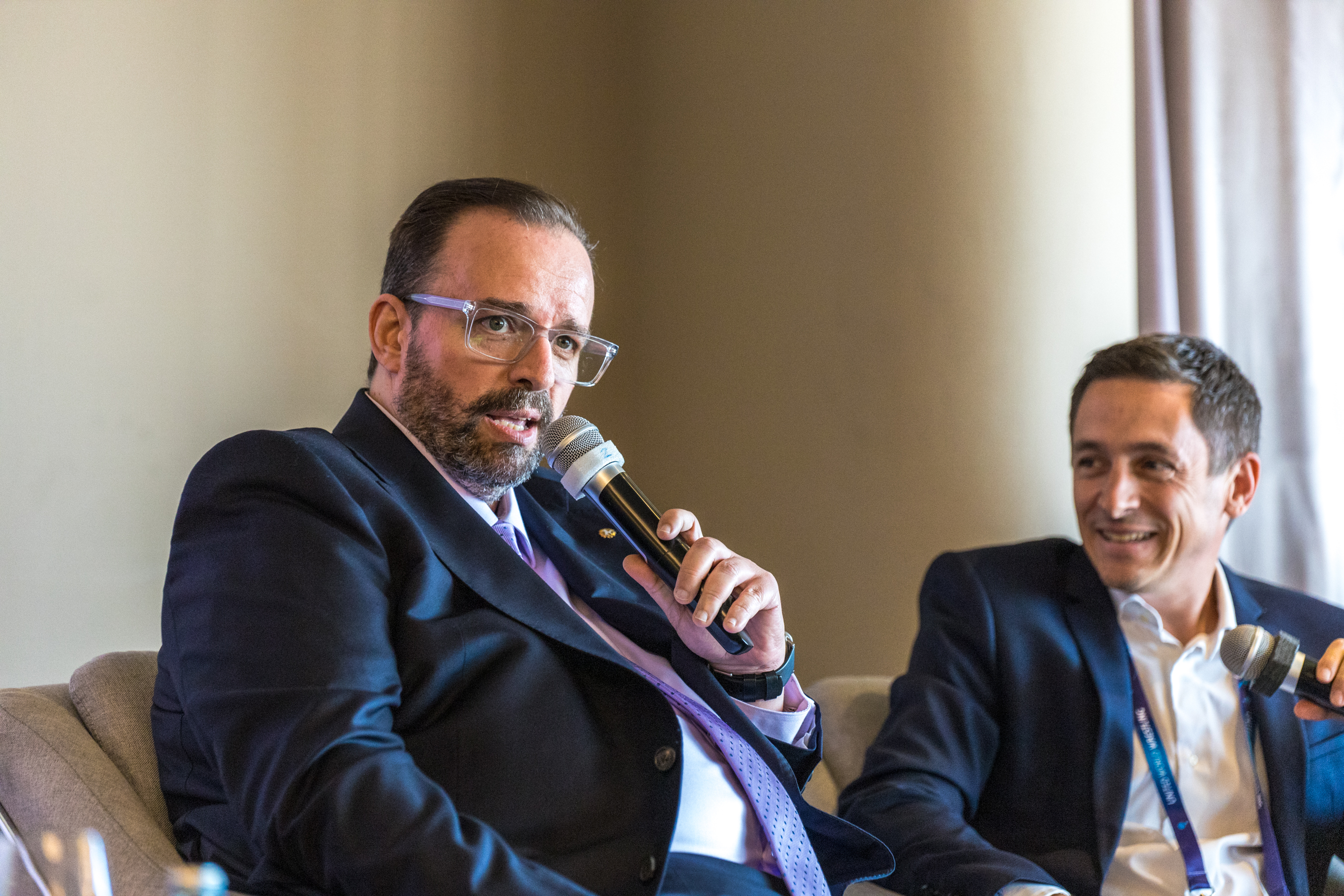 UWW Beach Wrestling Committee President Pedro SILVA.
UWW Beach Wrestling Committee President Pedro SILVA.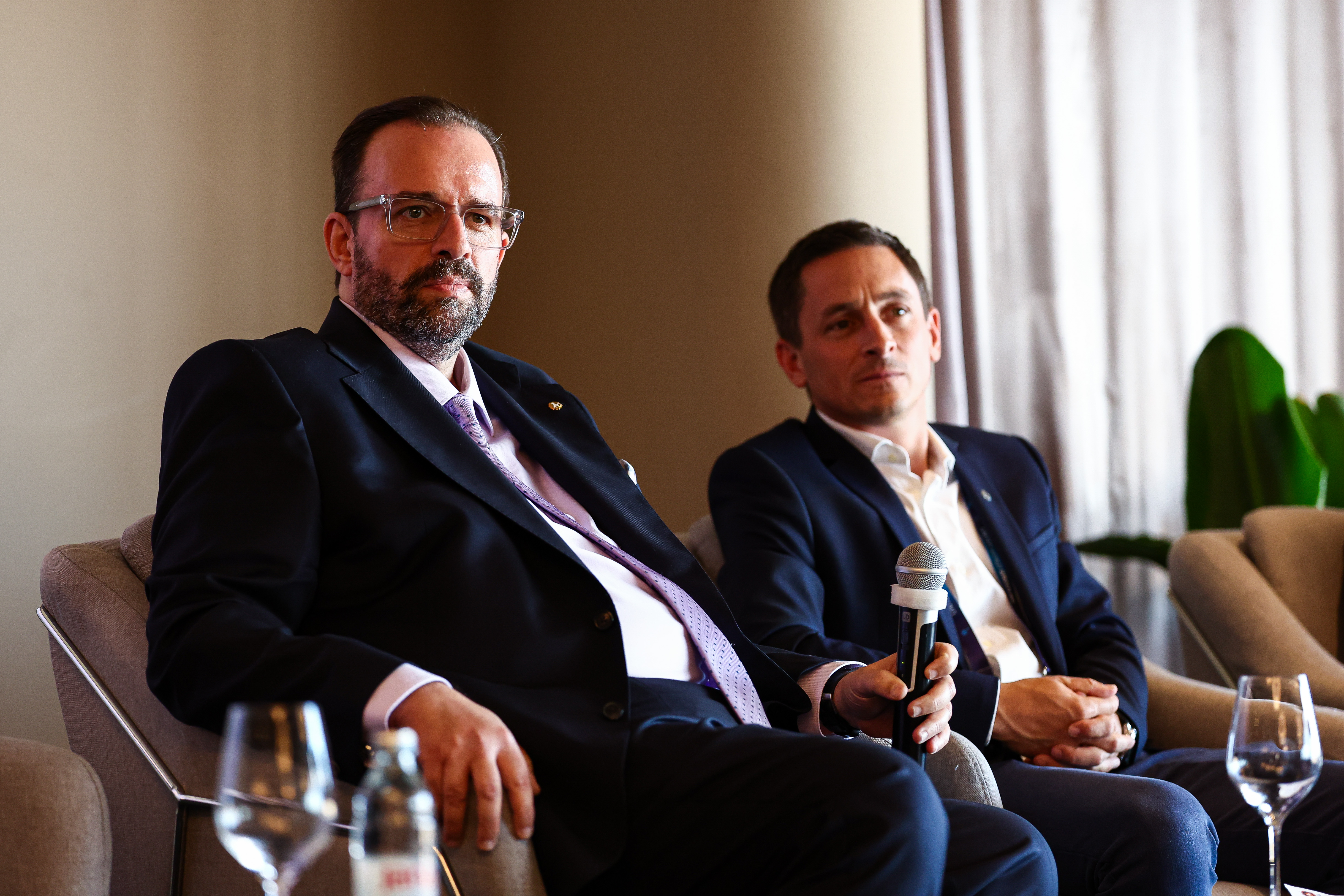 Pedro SILVA, left, and UWW Sports Director Jean-Daniel REY. (Photo: United World Wrestling / Jake Kirkman)
Pedro SILVA, left, and UWW Sports Director Jean-Daniel REY. (Photo: United World Wrestling / Jake Kirkman)
Share your thoughts.
Comments